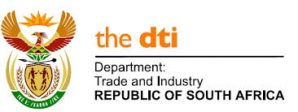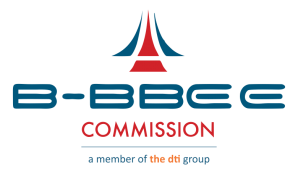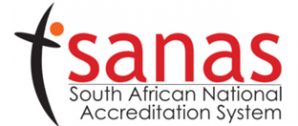
The Independent Communications Authority of South Africa (ICASA) is the regulator for the South African communications, broadcasting and postal services sector. ICASA was established by an Act of statute, the Independent Communications Authority of South Africa Act of 2000, as Amended. ICASA’s mandate is spelled out in the Electronic Communications Act for the licensing and regulation of electronic communications and broadcasting services, and by the Postal Services Act for the regulation of the postal sector. Enabling legislation also empowers ICASA to monitor licensee compliance with license terms and conditions, develop regulations for the three sectors, plan and manage the radio frequency spectrum as well as protect consumers of these services.

The dti´s strategic objectives are to: 1.Facilitate transformation of the economy to promote industrial development, investment, competitiveness and employment creation; 2.Build mutually beneficial regional and global relations to advance South Africa´s trade, industrial policy and economic development objectives; 3.Facilitate broad-based economic participation through targeted interventions to achieve more inclusive growth; 4.Create a fair regulatory environment that enables investment, trade and enterprise development in an equitable and socially responsible manner; and 5.Promote a professional, ethical, dynamic, competitive and customer-focused working environment that ensures effective and efficient service delivery. These five strategic objectives will be achieved through the collective efforts of the dti´s internal divisions and its Council of Trade and Industry Institutions (COTII), which are linked through a value chain to generate public value for the country´s economic citizens and deliver high-quality products and services to the dti´s varied clients and stakeholders. These products and services include policies, legislation and regulations, financial support and investment incentives, information and advisory support, as well as value-added partnerships. After careful examination of its institutional arrangements and capacity to fulfil its mandate, the dti has clustered its work on the basis of core themes, which collectively seek to promote a more effective and co-ordinated approach to implementation of the dti´s strategic objectives, for an enhanced and long-term impact on the South African economy and its citizenry.

We are established by Section 13B of B-BBEE Act 46 of 2013 and we have jurisdiction throughout the South Africa. We must be impartial and perform our functions without fear, favour or prejudice, in the most cost-effective manner and in accordance with the values and principles mentioned in section 195 of the Constitution. In terms of Section 13E, we are financed from money that is appropriated by Parliament for the B-BBEE Commission, and money lawfully received from any other source. The Auditor-General is mandated to audit our financial records every year. Inclusive – refers to equal participation, equitable opportunities for of all, and benefits experienced by every section of the society across South Africa. This generally implies a link of macroeconomic and microeconomics factors of the economy for inclusivity to materialize. Economy – entails the state of the country in terms of production, distribution and consumption of goods and services in a particular geographic region. It is imperative for the country to grow its economy through internal production and distribution of goods locally and internationally, and there is a need for a strong trade investment arm within government that will not only identify markets for locals, but will also ensure sustainability. Together – forging and forming relations, working as teams and partnering with others to achieve end goal, private sector, government, labour and civil society – no one should be left behind as we strive for an inclusive economy for all. This economy must effectively benefit all of us, thus we should work towards the same vision as outlined in the National Development Plan, and in line with goals and targets set by Cabinet from time to time.

The South African National Accreditation System (SANAS) is the only national body responsible for carrying out accreditations in respect of conformity assessment, as mandated through the Accreditation for Conformity Assessment, Calibration and Good Laboratory Practice Act (Act 19 of 2006). This includes the accreditation of: a) Calibration laboratories; b) Proficiency testing service providers; c) Producers of certified reference materials; d) Testing laboratories, which includes Medical, Veterinary, Forensic, Pharmaceutical, Chemical and Microbiological, Physical and Mechanical laboratories; e) Blood transfusion services; f) Verification laboratories; g) Inspection bodies; h) Certification bodies; i) BBBEE rating agencies; and j) Any other type of body that may be added to SANAS’ scope of activity. SANAS is also recognized as the national body to monitor GLP / GCP compliance with the principles adopted by the OECD for GLP facilities or the VICH principles of GCP. Accreditation means third-party attestation related to conformity assessment bodies conveying formal demonstration of their competence to carry out specific conformity assessment tasks.

The mandate of the Department of Telecommunications & Postal Services (Dtps) is derived from relevant legislation, and is as follows: “To create a vibrant ICT sector that ensures that all South Africans have access to robust, reliable, affordable and secure ICT services in order to advance socio-economic development goals and support the Africa agenda and contribute to building a better world”. Consequently the core functions of the Department of Telecommunications & Postal Services are: To develop ICT policies and legislation that create conditions for an accelerated and shared growth of the South African economy, which positively impacts on the well-being of all our people and is sustainable; To ensure the development of robust, reliable, secure and affordable ICT infrastructure that supports and enables the provision of a multiplicity of applications and services to meet the needs of the country and its people; To contribute to the development of an inclusive information society which is aimed at establishing South Africa as an advanced information-based society in which information and ICT tools are key drivers of economic and societal development. To contribute to e-Skilling the nation for equitable prosperity and global competitiveness To strengthen the Independent Communications Authority of South Africa (ICASA), in order to enable it to regulate the sector in the public interest and ensure growth and stability in the sector; To enhance the capacity of, and exercise oversight over, State Owned Enterprises (SOE’s) as the delivery arms of Government; and To fulfil South Africa’s continental and international responsibilities in the ICT field.